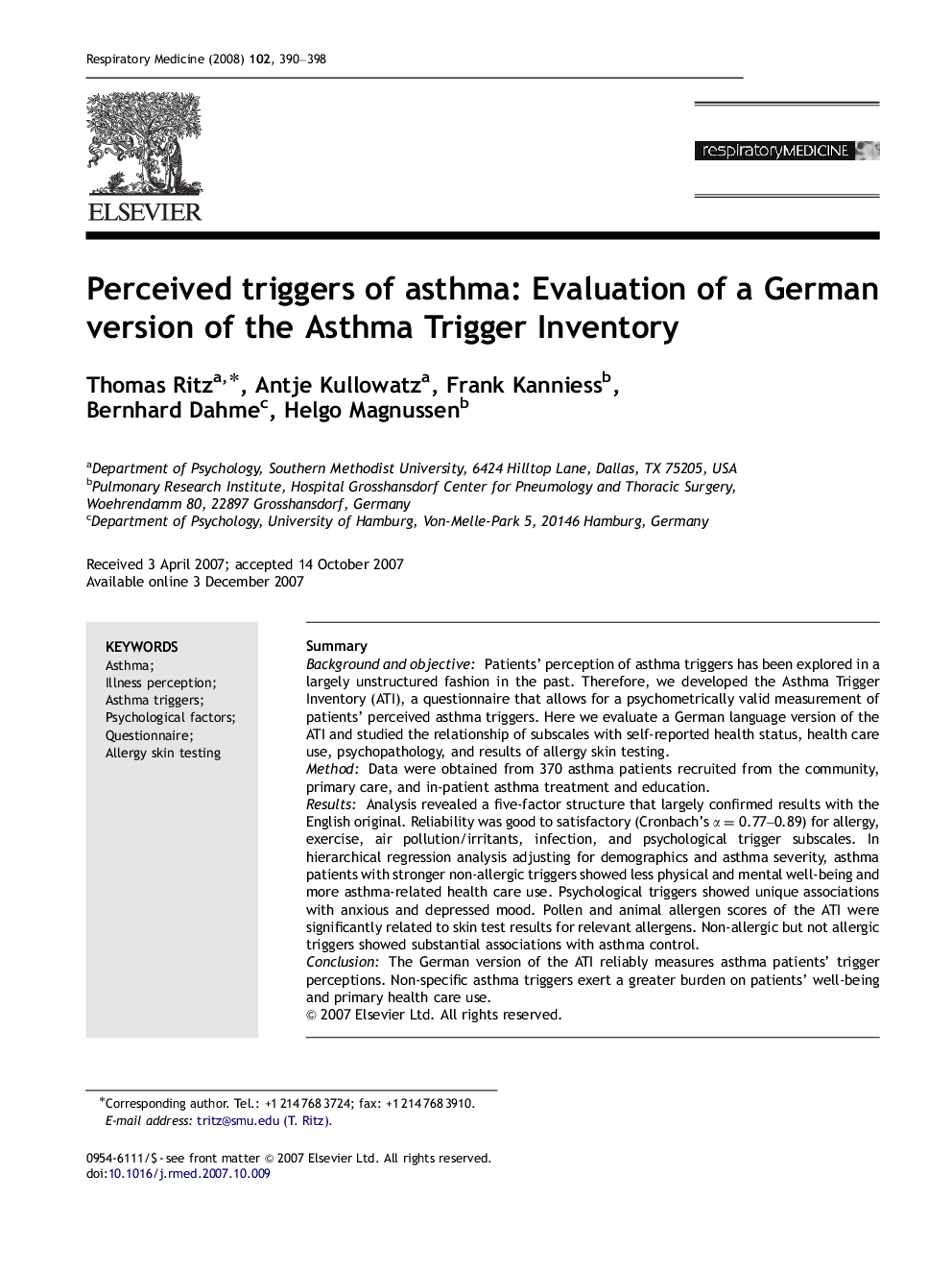| Article ID | Journal | Published Year | Pages | File Type |
|---|---|---|---|---|
| 4211293 | Respiratory Medicine | 2008 | 9 Pages |
SummaryBackground and objectivePatients’ perception of asthma triggers has been explored in a largely unstructured fashion in the past. Therefore, we developed the Asthma Trigger Inventory (ATI), a questionnaire that allows for a psychometrically valid measurement of patients’ perceived asthma triggers. Here we evaluate a German language version of the ATI and studied the relationship of subscales with self-reported health status, health care use, psychopathology, and results of allergy skin testing.MethodData were obtained from 370 asthma patients recruited from the community, primary care, and in-patient asthma treatment and education.ResultsAnalysis revealed a five-factor structure that largely confirmed results with the English original. Reliability was good to satisfactory (Cronbach's α=0.77–0.89) for allergy, exercise, air pollution/irritants, infection, and psychological trigger subscales. In hierarchical regression analysis adjusting for demographics and asthma severity, asthma patients with stronger non-allergic triggers showed less physical and mental well-being and more asthma-related health care use. Psychological triggers showed unique associations with anxious and depressed mood. Pollen and animal allergen scores of the ATI were significantly related to skin test results for relevant allergens. Non-allergic but not allergic triggers showed substantial associations with asthma control.ConclusionThe German version of the ATI reliably measures asthma patients’ trigger perceptions. Non-specific asthma triggers exert a greater burden on patients’ well-being and primary health care use.
